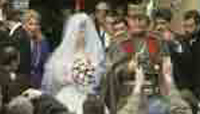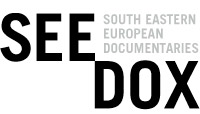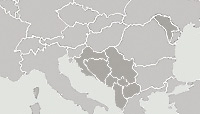Film Profile

Vidimo se u čitulji / The Crime that changed Serbia
Janko Baljac's The Crime that Changed Serbia ( also from B92) looks at the general issue of crime. Since the beginning of the war in Bosnia, criminal activity in Serbia has risen dramatically. According to this documentary, the fact that the number of crimes doubled in the first years of the war is mainly attributed to the boom in arms traffic after the UN sanctions were imposed on Yugoslavia. The film is composed of fragments from interviews with leading criminal personalities who were operating in this period. There also interviews with police officers and photographs of criminals who, with members of their gangs, are all fully equipped with guns. War-struck Serbia is a frustrated nation. Young people realise that their future consists of poverty, uncertainty and fear. As in many cities of ex-Communist countries, they are easily tempted by the
money, the glamour and the delights that being a member of a gang can offer. Besides, there is a lack of other attractive options when society is collapsing around them and living standards are falling dramatically. Being a member of the Yugoslav Mafia gives a feeling of security becauseit has the air of being the only fixed feature of Serbian life. In the words of one of the interviewees "Every young man in Serbia dreams of becoming a member of a gang for five minutes in his life." The same person adds that "Mortals (that is, ordinary people) will not experience in their entire life what one of us experiences in one day."
The perception of capitalism as the pursuit of easy money and profit without productive activity is another reason for youngsters to get involved in illegal activity. It is a generation that wants it all and it wants it now. It is a struggle of young people to distinguish themselves from other citizens of Belgrade in a malicious way and secure, as they perceive it, a better future for themselves. The idols of this generation of young are notorious criminals such as Carlos and Arkan. They acknowledge the fact that criminal activity in Serbia has not reached Western standards because of the lack of "professionalism." The power of the film is that criminals themselves are talking about crime in Serbia. They explain how things work and assess the positive and negative aspects of the criminal profession in the country. It is a unusual and disquieting opportunity for the viewerto peer into the underworld of the Balkans. The last scenes - the funerals of three of the people who had been interviewed and were killed during the shooting of the film - came to remind us that what we have seen and heard, no matter how unbelievable it may seem, is real. It is a documentary based on an original idea, rarely seen in the past and its immediacy make it compelling viewing.
Source: Maria Vidali: Another truth. Serbian documentaries at the Raindance Film Festival, in: Central Europe Review, Vol. 1, No. 18; 25th Oct., 1999;
http://www.pecina.cz/files/www.ce-review.org/99/18/kinoeye18_vidali.html
Yugoslavia 1995
35 min, colour
DIRECTOR
Janko Baljak
SCREENPLAY
Aleksandar Knežević
Vojislav Tufegdžić
CAMERA
Nenad Mladenović
Dejan Jovanović
Nikola Majdak
EDITOR
Aleksandra Virijević
MUSIC
Goran Kapetanović
Petar Antonović
PRODUCTION
TV B 92, Belgrade
CONTACT
TV B 92, Belgrade



















